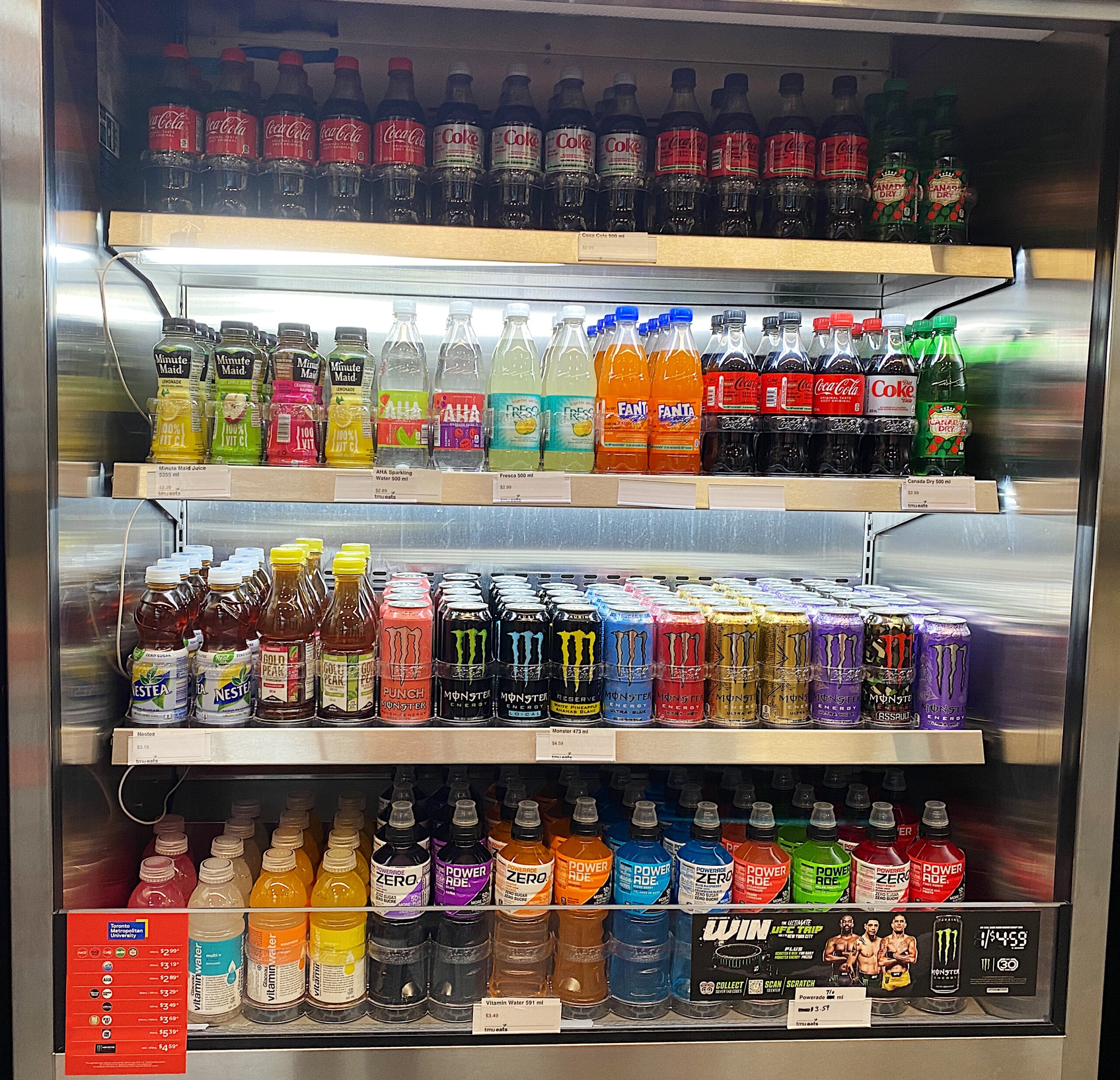
Listen to the full story here:
The consumption of energy drinks is linked to depression, anxiety and attention deficit hyperactivity disorder (ADHD) in young people, according to new research published in the journal Public Health.
Researchers at Teesside and Newcastle Universities analyzed 57 studies investigating the effects of energy drinks on children and youth up to the age of 21. In addition to linking the drinks to a range of mental health disorders, the study also points to a connection between energy drink consumption and harmful behaviours such as smoking, alcohol and drug use.
“Energy drinks are marketed to children and young people as a way to improve energy and performance, but our findings suggest that they are actually doing more harm than good,” Amelia Lake, one of the study’s authors, said via email. “The evidence is clear that energy drinks are harmful to the mental and physical health of children and young people as well as their behaviour and education.”
Energy drink companies are fixtures on many university campuses, including TMU where Red Bull sponsors the Red Bull Gaming Hub in the Rogers Communication Centre.
TMU’s Creative School defended the decision to take money from Red Bull for the Gaming Hub, expressing gratitude for their support. “The Creative School does not endorse energy drinks. Red Bull helped us build the lab, which is why it is included in the name of the facility,” the statement provided to OTR also said.
The Red Bull Gaming Hub, located on the second floor of the Rogers Communication Centre, features a variety of gaming consoles along with a fridge stocked with Red Bull cans that can be purchased by students. Red Bull also has its own dispenser inside the TMU Student Campus Centre. Other energy drinks such as Monster and Reign can be purchased at vending machines across campus.
Energy drink companies also involve university students in helping to promote their products. Red Bull, for instance, hires students from the University of Toronto to be “student marketeers” and improve sales on campus. Other companies such as Monster Energy will show up at university campuses to hand out free products.
“We don’t typically need contracts for events unless we are going inside a building,” said Madison Dolman, a consumer engagement marketer for Monster Energy. “University students make a great demographic which is why we pull up to campuses in the Monster truck to do roaming samples,” she added.
Dolman said that the company is aware of the effects that come with energy drinks and therefore pushes the sale of “healthier alternative” options such as Reign and True North as they constrain no sugar.
They all, however, contain significant amounts of caffeine. The Red Bull cans currently being sold on TMU’s campus contain 77.4 milligrams of caffeine and the Monster Energy cans contain 160 milligrams. Reign, one of Monster Energy’s sugarless products also sold on campus, contains 300 milligrams of caffeine.
Norine Khalil, a registered dietitian and nutrition consultant for the educational nutrition company Lifeberry, said that energy drinks are not a product she recommends due to the high caffeine content.
“I don’t think it’s the greatest idea for these drinks to be offered in schools just kind of knowing as a dietitian what our caffeine recommendations are,” she said. “As adults, the quote-unquote safe amount to consume is up to 400 milligrams of caffeine daily and less than that for those younger such as children and youth.”
“Particularly in youth I find that energy drinks are quite popular but given how much caffeine we should be consuming on a day-to-day basis in comparison to how much is in some of these drinks, I find that they can be quite risky,” said Khalil.
Ryan Park, a fourth-year business management student at TMU, said he frequently buys Red Bull from the school vending machines.
“I usually buy one after class if I know I’m going to be up late gaming or if I have to work an evening shift because it helps me to stay awake,” said Park.
“I knew that these drinks had a lot of caffeine in them but I didn’t know that it was enough to mess with my mental health. It’s kind of surprising how easily accessible they are to students if they are that dangerous. I don’t think that this will stop me from buying energy drinks but it is a good thing to know all of the risks.”
Reporter, On the Record, winter 2024

